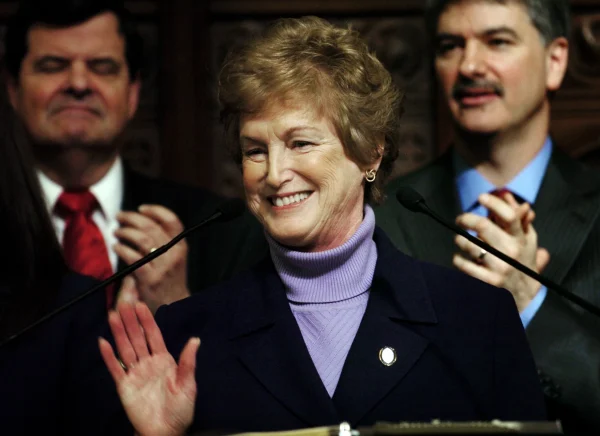Trump pleads not guilty to 34 felony counts
In a 16-page indictment, prosecutors said former President Donald Trump “orchestrated a scheme with others to influence the 2016 presidential election by identifying and purchasing negative information about him to suppress its publication and benefit the Defendant’s electoral prospects.”
Prosecutors said the scheme involved three payments made by Trump allies to conceal damaging stories, including: $30,000 to a former Trump Tower doorman who said Trump had fathered a child out of wedlock; $150,000 to a former Playboy model who said she had an affair with Trump; and $130,000 to adult film star Stormy Daniels, who also alleged an affair. Trump has denied having affairs with both women and the company that paid the former doorman determined his story was false.
Michael Cohen, Trump’s former attorney and “fixer,” made the payment to Daniels in the days leading up to the 2016 election. Prosecutors said Trump illegally disguised his reimbursement to Cohen by classifying them as legal fees.
“The payment records, kept and maintained by the Trump Organization, were false New York business records,” the statement of facts said, referring to Cohen. “In truth, there was no retainer agreement, and Lawyer A was not being paid for legal services rendered in 2017. The Defendant caused his entities’ business records to be falsified to disguise his and others’ criminal conduct.”
Falsifying business records is typically a misdemeanor under New York law, but can be charged as a felony if done with an “intent to defraud [that] includes an intent to commit another crime or to aid or conceal the commission thereof.” Prosecutors said Trump’s conduct was intended to violate election laws.
During Tuesday’s arraignment, prosecutors said they were negotiating the logistics of a “protective order” with Trump’s defense team, which would limit how Trump and his attorneys can use the documents they will be given from the grand jury proceedings during the discovery process.
Prosecutors said they want to prohibit Trump from posting any discovery materials to social media or sharing them with third parties, such as journalists. They also said they plan to allow Trump to review certain sensitive materials only with his lawyers.
Trump’s attorneys must agree to the specifics of the agreement, but the exchanges on Tuesday showed concern from the district attorney’s office about what Trump might say or post about the evidence they hand over.
“The entirety of the prosecution’s case file will soon have to be turned over to the defense,” said CNN legal analyst Karen Friedman Agnifilo. “Prosecutors don’t want it made public because they’re focused on the proceedings and know Trump will try this in the court of public opinion way before any trial in a court. That’s where the integrity of the proceedings can get really dicey – and that’s what they’re trying to accomplish with a protective order.”
If the case goes to trial, it’s not going to be until next year – when Trump could be in the thick of the 2024 Republican presidential primary.
New York Judge Juan Merchan set the next hearing date in the case for Dec. 4, nearly eight months away. He also set an Aug. 8 deadline for Trump’s lawyers to file motions in the case, such as an attempt to get the charges dismissed or reduced to misdemeanors.
Prosecutors have until Sept. 19 to respond and then Merchan expects to rule on the motions at the December hearing.
Prosecutors asked Merchan to plan for a trial beginning in January 2024, but Trump’s attorneys suggested that the spring might be more realistic given that they had not yet received any documents in the case.
Merchan seemed to side with Trump’s lawyers.
“I understand what you are saying,” Merchan said. “I think that is reasonable. You have not received discovery. It is difficult to anticipate if you will be ready for trial in January of 2024. The message I would like to deliver is we would like to move ahead as expeditiously as possible, without undue delay.”



